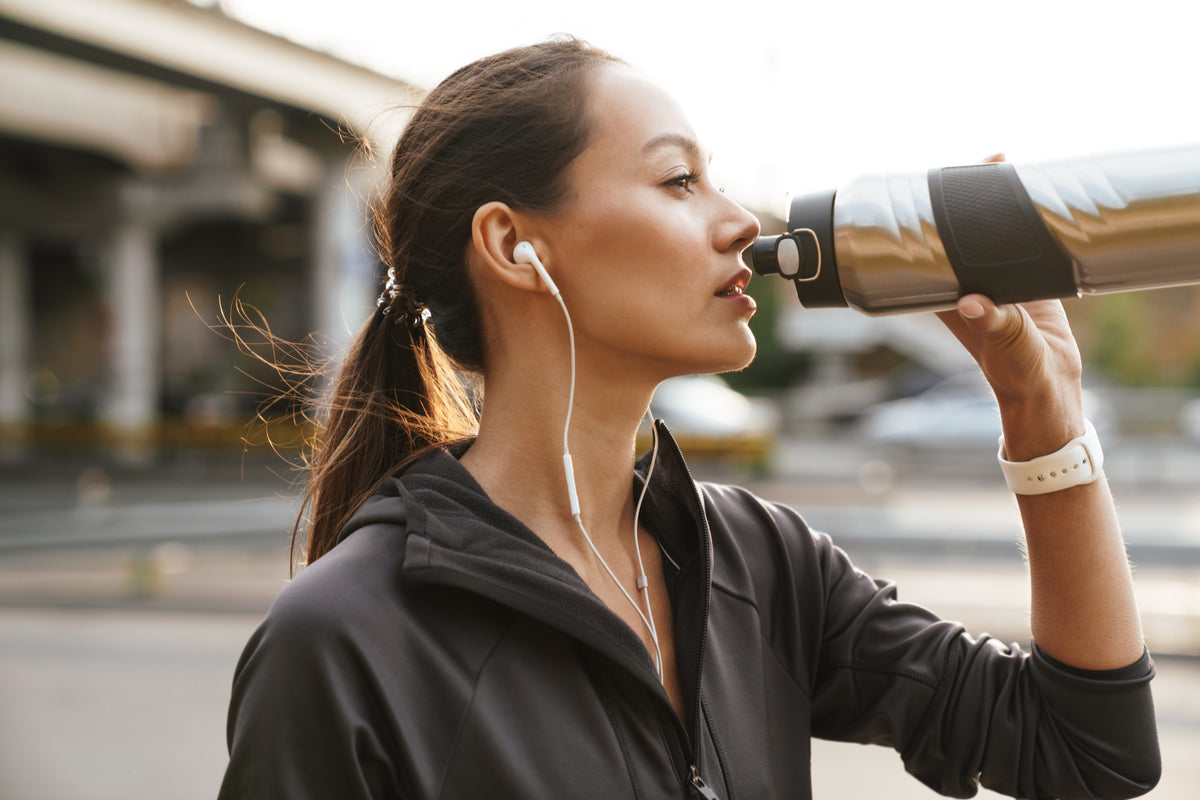
Quick Take
When you exercise, one of the most important things you need to be aware of is your hydration. And when it comes to staying hydrated, any athletes reach for sports drinks, but are they safe? Here's what you need to know about sports nutrition to stay healthy and hydrated.
Before We Begin: Fuel Your Workout with Vegan Athlete Meals
Want to eat plant-based but worried your workouts will suffer? Get ready-made meals delivered, with the MamaSezz Peak Performance Bundle, specifically formulated with athletes in mind. Developed in collaboration with Dr. Jami Dulaney, a board certified Cardiologist and endurance athlete. Learn more about the MamaSezz Peak Performance Bundle here.
On This Page
What’s in a Sports Drink?
Do Sports Drinks Have Any Benefits?
What About Endurance Athletes?
What Can I Drink Instead?
Key Takeaways
What’s in a Sports Drink?

Simply put, sugar. A lot of sugar. The amount of sugar you normally find in sodas. Even the beverages marketed as a healthy sports drink. In fact, sports drinks have been associated with an increased risk of diabetes, tooth decay, and weight gain. And it's not just sugar you need to watch out for; they are often full of additives and food dyes.
Granted, sports drinks also contain electrolytes too, but do you really need them? Keep in mind that most people who consume these beverages do not go through the intense exercise needed to negate the negative effects of drinking them.
Do Sports Drinks Have Any Benefits
There's a common misconception that electrolyte intake is necessary during exercise, but studies show us this simply isn't true. Any type of drink during exercise will provide hydration And while the sugar in popular sports drinks can help push the body sometimes to sustain prolonged exercise, is it worth it? The average Joe who goes to the gym three times per week to lift weights and run on the treadmill really doesn’t need any kind of sports drink to replenish electrolytes. Actually, he may sabotage his journey to a stronger, healthier body by choosing sports drinks.
What About Endurance Athletes?

For most, there is really no reason to sip on anything other than water for your workouts. And while you may think endurance athletes need to focus on replenishing electrolytes, it turns out that may not be true either. First, studies found no correlation between dehydration and slower marathon-finishing times. And second, drinking too much of any liquid, water or sports drinks, can cause you to flush too much out of your system and cause sodium imbalance.
The best thing you can do to prevent dehydration while working out? It's not some speciality healthy sports drink. It's just to drink according to thirst.
What Can I Drink Instead?

But if you truly think you need something more than water, why not try some coconut water or fresh orange juice as your "healthy sports drink" alternative? A cup of freshly squeeze refined sugar–free orange juice will replenish your electrolytes, hydrate you, and improve your blood pressure due to its antioxidants.
Similarly, coconut water has been a very popular alternative to sports drinks as it naturally contains many key ingredients found in commercial sports drinks, such as sodium and potassium. Be careful though, as the amount of potassium present in coconut water can cause a lot of problems for people who suffer from kidney disorders, and send them into hyperkalemia, a life-threatening situation for people with an abnormal kidney function.
Key Takeaways
- Sports drinks have high sugar levels, which increase the risk of diabetes, tooth decay, and weight gain.
- During exercise, drink according to your thirst. Drinking too much water can actually be detrimental to your health, as it causes us too flush out too much fluid.
- Water can generally give you everything you need during your workouts, even if you're an endurance athlete.
- If you really want to drink something other than water, it is best to have some fresh refined sugar–free orange juice or coconut water over most commercially-sold sports drinks.
**
Rafaela Michailidou is a Vegan Lifestyle Coach, and a freelance health and wellness content writer, with a Plant-Based Nutrition Certificate from the T. Colin Campbell Center for Nutrition Studies.

